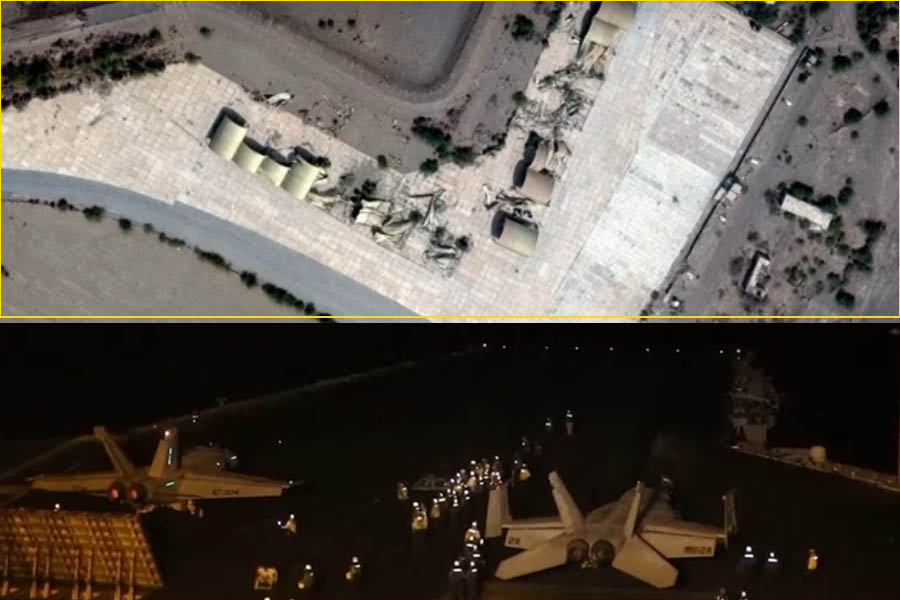
In a rapidly evolving geopolitical landscape, President Biden recently announced that the United States has delivered a "private message" to Iran regarding its association with the Houthi rebels in Yemen. This revelation comes on the heels of a second US strike targeting Houthi positions, further complicating an already protracted conflict with implications stretching far beyond the borders of Yemen.
The latest strike, characterized as a "follow-on action" by the US, targeted Houthi radar installations in Yemen. President Biden provided minimal details about the private message to Iran, leaving the international community to speculate about the nature of the communication. The US asserts that Iran, despite its denial, plays a crucial role in supporting the Houthi rebels by supplying weapons and providing intelligence critical for targeting ships in the Red Sea.
Joint airstrikes carried out by the UK and US, with support from Western allies like Australia and Canada, targeted nearly 30 Houthi positions. The strikes, justified as a response to unprovoked attacks on commercial shipping in the Red Sea, have ignited a complex web of regional tensions, drawing connections to the ongoing conflict in Gaza.
The Houthi rebels, a Shia Muslim minority group controlling significant parts of Yemen, have declared solidarity with Hamas and the people of Gaza. This alignment, seen in the context of the broader Arab world, is perceived as the US and UK supporting Israel in the Gaza conflict. The strikes against the Houthis are viewed through the lens of an expanded conflict, with accusations that the West is indirectly fulfilling Israel's interests.
However, Western governments argue that the airstrikes are a necessary response to Houthi attacks on commercial shipping, unrelated to the Gaza conflict. Despite this, the perception in Yemen and the broader Arab world remains one of the US and UK aligning with Israel. The complexity of the situation is evident in the differing perspectives on the airstrikes, highlighting the challenges of navigating regional alliances.
The importance of the Red Sea as a critical maritime route cannot be understated. Approximately 15% of global seaborne trade, including vital commodities like oil, grain, and liquefied natural gas, passes through this strategic waterway. The Houthi attacks on ships in the Red Sea have led major shipping companies to alter their routes, causing disruptions and a surge in insurance costs.
While the airstrikes may have temporarily degraded Houthi capabilities, the risk of being drawn into a prolonged conflict in Yemen looms large. The Houthis, backed by Iran, have proven resilient in the face of previous airstrikes, and the prolonged engagement of Saudi Arabia in the Yemeni civil war serves as a cautionary tale.
The international community's involvement in the Yemen conflict, coupled with the complex dynamics of regional alliances, underscores the interconnectedness of geopolitical events. As the US and UK grapple with the aftermath of their strikes in Yemen, the risk of unintended consequences and further escalation remains a challenging factor in an already volatile Middle East.
The echoes of the Gaza conflict reverberate in the Red Sea, demonstrating the intricate nature of conflicts that transcend borders. The international community watches with bated breath, hoping for containment rather than an expansion of hostilities in a region already grappling with multiple crises.